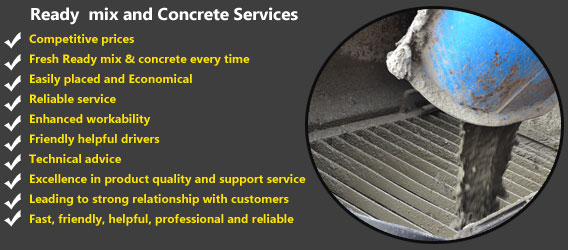Concrete is a composite consisting of the following main constituents: cement, aggregates, water, and admixtures.
It is a material that can be cast into different shapes, is durable, is the most attractive construction material in terms of compressive strength (construction material with highest strength per unit cost), and its increasing use is fundamental for sustainable construction.
Sustainable Benefits of Ready-Mix Concrete
- We continuously work to improve the properties of concrete that make it a key component of sustainable construction: durability, resistance to aggressive environments, light reflection, and capacity to store energy, among others.
- We also constantly work to develop innovative solutions that advance the sustainability of structures made with concrete. In this way, our customers can design sustainable buildings that can take advantage of the benefits of concrete in a wide range of applications.
Engineered Concrete
- A special design of high performance concrete combines durability and low maintenance with resistance to aggressive environments.
- Industrial Applications: concrete with high acid resistance is robust and durable for such uses as cooling towers.
Building and Housing
- Structures: self-compacting concrete improves strength and durability of building structures, while reducing energy use and noise due to concrete vibration.
- Envelope: structural lightweight concrete or Insulating Concrete Forms offer insulation solutions to improve energy efficiency in buildings.
- Building Design: concrete’s capacity to store energy—its thermal mass—minimizes temperature fluctuations in a building over the course of the day, reducing the need for additional heating and cooling.
Water and Wastewater Management
- Pervious Pavement: pervious concrete allows rainwater to filter through and reduce flooding, while helping to decrease heat concentration.
- Water Channels: concrete water channels are used in farming to reduce the amount of water lost as it flows through fields. Locally produced concrete also provides an affordable solution.
- Potable Water and Sewage Systems: high performance concrete is used for pipes, which are affordable, long-lasting, have high structural strength, and can withstand water abrasion.
- Wastewater Treatment Plants: special cements and high technology concrete design increase chemical resistance and reducing maintenance.
Roads and Pavements
Paving: Concrete roads are durable and need little maintenance. They require less energy for street lighting, keep urban areas cooler, and decrease the urban heat island effect.




